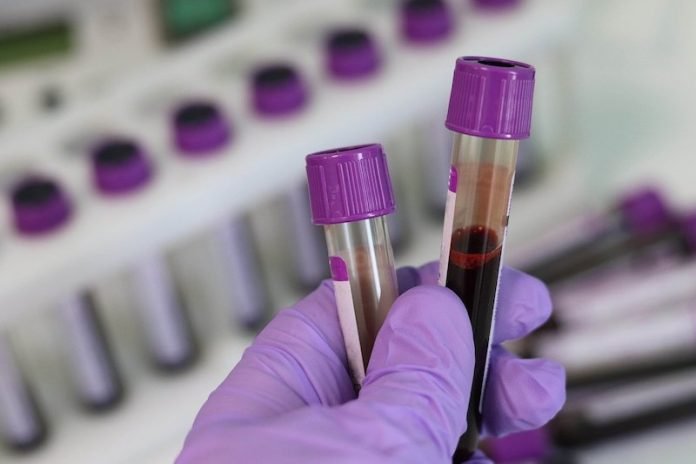
In a new study, researchers found key biomarkers in the blood of COVID-19 patients, which can help predict the severity of illness and lead to new treatments for the virus.
The findings involved 250 patients with COVID-19 whose plasma was tested in Spain for the presence of ribonucleic acid or RNA, the virus’s genetic blueprint.
The research was conducted by Dalhousie immunologists and others in Spain.
More than 30 research hospitals in the country were involved in assessing the viral loads in the plasma of three groups of patients with varying degrees of illness during the first wave of the pandemic wave in Spain from March 16 to April 15, 2020.
The team found that 78% of patients who were severely ill had higher amounts of viral RNA than those with mild cases.
Those who died had the highest concentrations of viral RNA in their plasma, leading the researchers to conclude that the presence of the RNA in a patient’s blood is linked to critical illness.
The team says the research could help in quickly identifying patients at crowded hospital emergency rooms who need immediate and intensive care, and those who may be able to go home.
They now have an extremely reliable indicator for identifying severe COVID-19 patients who require critical care and should be admitted to the ICU, which will help intensive care unit doctors prioritize severely ill patients.
The researchers are working with a large company to develop a rapid test that could produce results in 15 minutes and indicate whether a positive patient has the viral RNA and what level of care they may need.
Such a device could be a valuable asset as confirmed case counts and hospitalizations continue to surge, particularly in the U.S.
Importantly as well, the team also discovered that the presence of COVID-19 viral RNA was directly linked to a dysfunctional immune response.
That may make severe patients unable to fend off the COVID-19 infection, due in part to elevated levels of certain proteins.
The identification of these patients will also help identify those who could be treated with new therapeutics, such as antibody cocktails.
Patients requiring hospitalization were older than those who were discharged from the ER. Critically ill patients were more frequently male, while obesity, hypertension, and type 2 diabetes were more commonly found in patients requiring hospitalization.
One author of the study is Dr. David Kelvin, a professor and Canada Research Chair.
The study is published in the journal Critical Care.
Copyright © 2020 Knowridge Science Report. All rights reserved.



